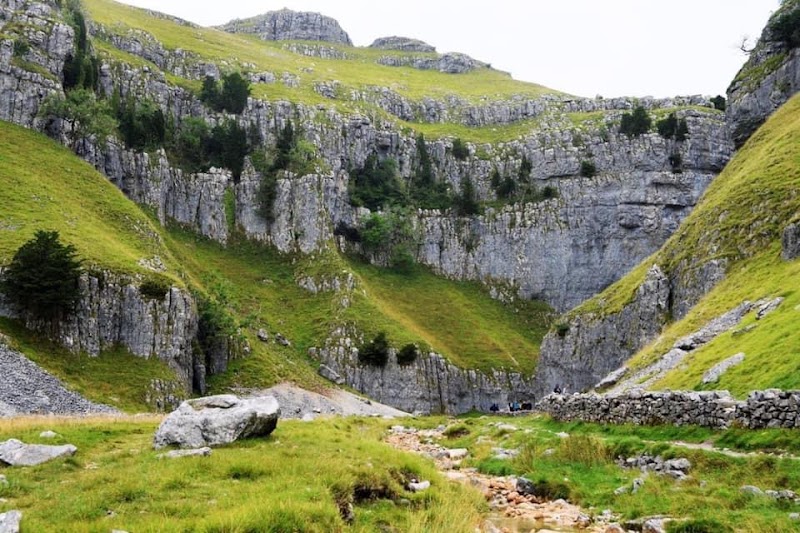
Experience the Vibrant Spirit of Worksop Carnival: A Celebration in Nottinghamshire
Celebrate vibrant culture and community at Worksop Carnival in Nottinghamshire, where colorful floats, lively performers, and local flavors converge for an accessible urban festival. Perfect for families and adventure seekers alike, this event invites you to experience the pulse of a proud town in full festive motion.
Arrive Early for Best Viewing
The carnival route can get crowded quickly. Plan to arrive at least 30 minutes before start time to secure a prime viewing spot and avoid the rush.
Wear Comfortable Footwear
Expect to be on your feet for several hours. Sturdy, cushioned shoes will keep you comfortable as you navigate streets and crowds.
Stay Hydrated
Even in mild summer weather, walking and standing for extended periods can dehydrate. Carry a refillable water bottle to stay refreshed.
Use Public Transport or Walk
Parking near the carnival can be limited and traffic heavy. Choose public transit options or walk from nearby accommodations to avoid delays.
Experience the Vibrant Spirit of Worksop Carnival: A Celebration in Nottinghamshire
Worksop Carnival arrives each year as a vibrant outburst of energy and community spirit in the heart of Nottinghamshire. Taking place in the historic town of Worksop, this event is more than just a parade; it’s a grassroots festival that invites locals and visitors to experience a multicolored procession of creativity, culture, and camaraderie. Expect flamboyant floats that push through the town’s streets, dozens of performers embodying themes both fun and fierce, and an atmosphere that crackles with anticipation and unity.
The carnival covers a manageable route through Worksop’s center, perfect for families, casual walkers, and those who come for the vibe as much as the spectacle. Spanning approximately 2 miles, the procession winds through well-paved streets with gentle inclines, making accessibility straightforward but never dull. Avoid rushing; the fluid pace of the carnival encourages you to engage with performers and the community booths that line the route.
Sound is a character itself—drums pulse like a heartbeat, dancers’ footfalls create rhythm, and laughter spills over the crowd. The sensory experience doesn’t stop with noise: the smell of fresh street food—ranging from local delicacies to international street fare—teases your appetite and invites extended exploration. Vibrant banners flutter over the streets, daring the wind to steal their colors.
Plan your visit for the carnival day, usually scheduled during the summer months, when daylight extends the party well into the evening. Arrive early to secure good vantage points and bring sturdy footwear suitable for standing and walking. Water bottles are a must; the day’s energy can dehydrate even the most spirited.
For those seeking a touch of local history, Worksop embodies a proud industrial heritage, and the carnival often nods to this through themed floats. This festival represents the town’s resilient character, rising each year with renewed fresh energy, celebrating diversity and inclusion.
While the carnival itself is a feast of colors and cultural expression, Worksop offers nearby green escapes for those who want to transition from festive city streets to refreshing nature. Considering a short hike or walk through nearby Sherwood Forest can balance your adventure with a quieter, natural pulse.
Whether you come to dance, photograph, or simply soak in the lively pulse of northern England’s carnival scene, Worksop Carnival delivers a meaningful, spirited festival experience. It’s uncomplicated in logistics, rich in community, and practical to enjoy—making it one of Nottinghamshire's most accessible cultural adventures.
Nearby Trips
All Adventures
Boat Charters
Water Activities
Adventures near Worksop, Nottinghamshire
Discover the unique and memorable adventures that make Worksop, Nottinghamshire special.
Frequently Asked Questions
When is the Worksop Carnival held?
Worksop Carnival typically takes place during the summer months, often in July or August, to take advantage of longer days and milder weather.
Is the carnival suitable for children and families?
Yes, the carnival is family-friendly with a safe, accessible route and plenty of interactive performances and stalls geared toward all ages.
Can I bring my own food and drinks?
While you can bring snacks, the carnival features a variety of street food vendors offering local and international flavors, making it easy to sample something fresh without carrying extra supplies.
Are there any parking or transport tips for carnival day?
Parking near the event can be limited. Public transportation and walking from nearby Sheffield or local accommodations is recommended to avoid queues and congestion.
What is the historical significance of Worksop Carnival?
The carnival celebrates the town’s industrial heritage and cultural diversity, showcasing community spirit rooted in decades of local craftsmanship, mining, and civic pride.
Is the carnival route wheelchair accessible?
Yes, the parade follows paved streets with gentle inclines, making it accessible for wheelchair users, though crowds may require early arrival for the best positions.
Recommended Gear
Comfortable Walking Shoes
Supportive shoes help manage hours spent on paved city streets.
Refillable Water Bottle
Keeps you hydrated through the energy-filled event.
Light Rain Jacket
A compact rain jacket provides protection against spring showers.
Camera or Smartphone
To capture vivid moments and colorful floats along the route.
Local Insights
Hidden Gems
- "King George's Park – a nearby green space ideal for a quiet stroll before or after carnival day"
- "Worksop Manor Ruins – historical remnants just outside town adding depth to your visit"
Wildlife
- "Peregrine falcons nesting near church steeples"
- "Common urban wildlife such as foxes and varied bird species active around parklands"
History
"Worksop’s carnival tradition is tied to the town’s mining and industrial roots, evolving into a cultural festival that reflects both community pride and social progress since the early 20th century."
